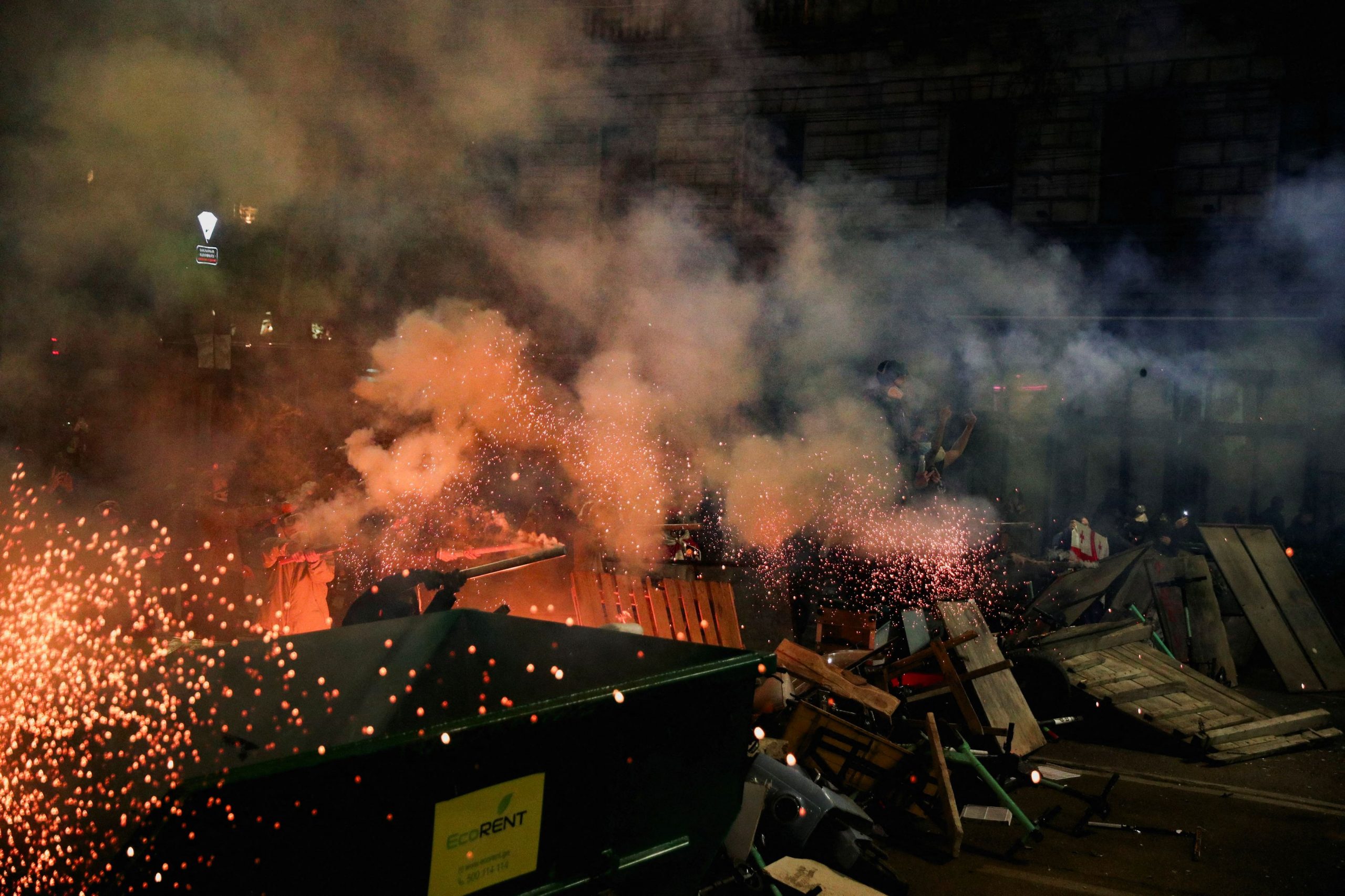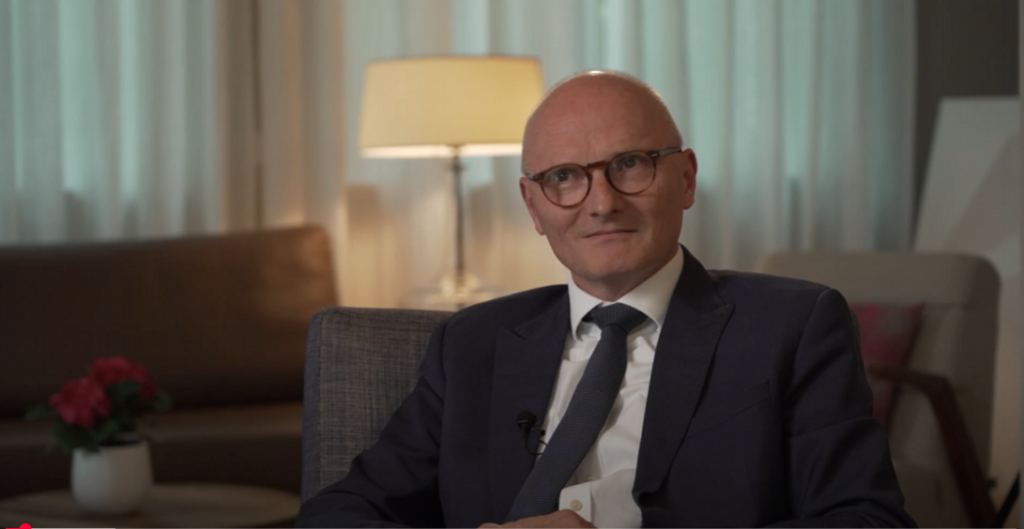Protests erupted in the capital, Tbilisi, late on Saturday, as thousands of demonstrators clashed with riot police over the government’s controversial decision to suspend European Union (EU) accession talks. The protests, some of the largest in recent years, followed a declaration by the ruling Georgian Dream party to freeze the EU talks for at least four years, citing accusations of blackmail from the EU.
According to Reuters, the protests outside the Georgian Parliament saw demonstrators building barricades, breaking windows, and setting off fireworks. Riot police responded with water cannons and tear gas to disperse the crowd. At one point, a small fire broke out in the parliament building, possibly caused by a firework. Protesters burned an effigy of Bidzina Ivanishvili, Georgia’s richest man and founder of the ruling party, symbolizing their frustration with the government’s stance.
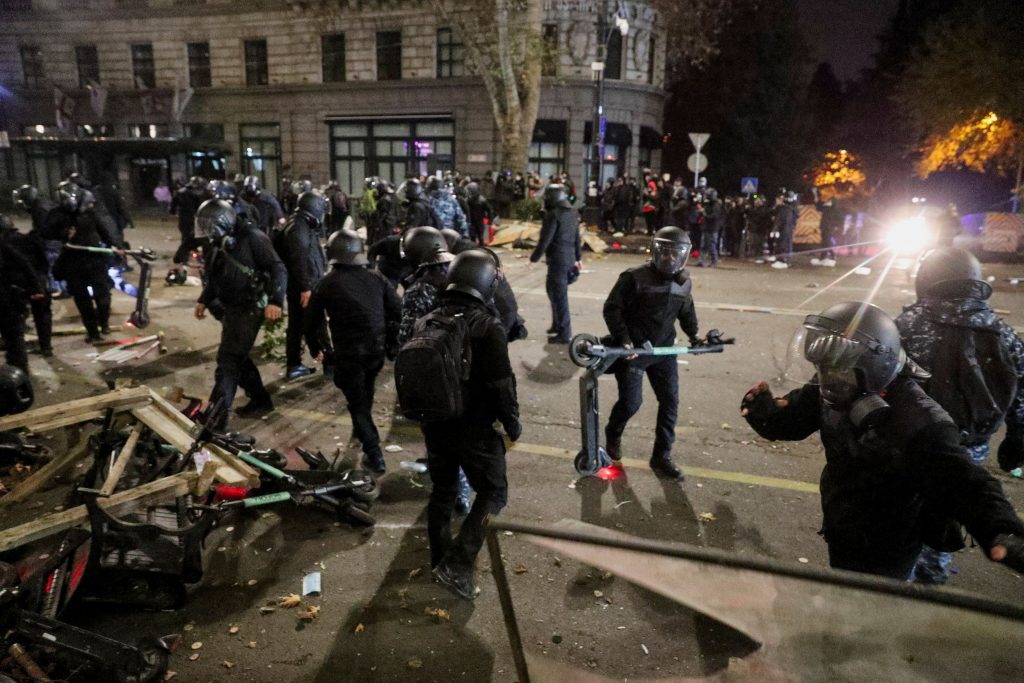
Demonstrators take part in a protest against the new government’s decision to suspend the European Union accession talks and refuse budgetary grants until 2028, in Tbilisi, Georgia, December 1, 2024. REUTERS/Irakli Gedenidze
The protests were sparked by the ruling party’s unexpected decision on Thursday to halt the EU talks, a move that has raised concerns both domestically and internationally. Georgia, traditionally one of the most pro-Western countries to emerge from the Soviet Union, has seen its alignment shift toward Russia in recent years, with growing ties between the two nations. This decision came as a shock, especially given the overwhelming support for EU membership among the Georgian people, with the goal enshrined in the country’s constitution.
Prime Minister Irakli Kobakhidze accused the pro-EU opposition of plotting a revolution, with claims that opposition leaders were attempting to overthrow the government by force. The government also suggested that political factions were trying to provoke unrest similar to Ukraine’s 2014 Maidan protests, which led to the ousting of a pro-Russian president. “Some people want a repeat of that scenario in Georgia,” Kobakhidze said, adding, “But there will be no Maidan in Georgia.”
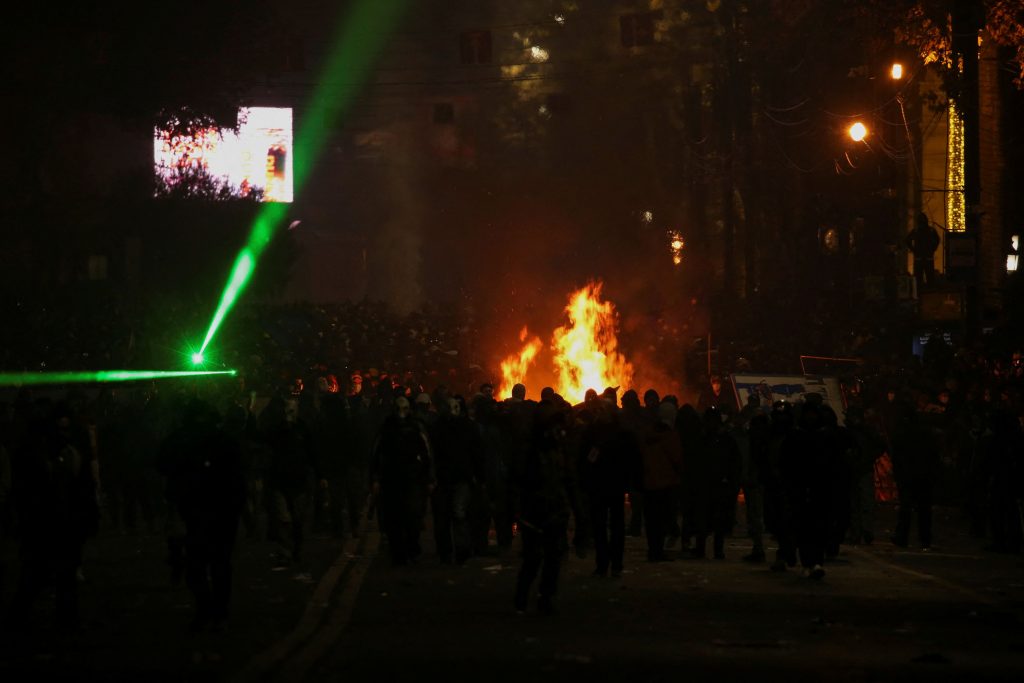
A fire burns as demonstrators take part in a protest against the new government’s decision to suspend the European Union accession talks and refuse budgetary grants until 2028, in Tbilisi, Georgia, December 1, 2024. REUTERS/Irakli Gedenidze
As protests intensified, the government deployed riot police to quell the unrest, arresting over 100 people on Friday night alone. Footage showing violent arrests by police quickly spread online, prompting concerns over police brutality. The Georgian ombudsman and the Organisation for Security and Co-operation in Europe (OSCE) both expressed deep concern over the excessive use of force.
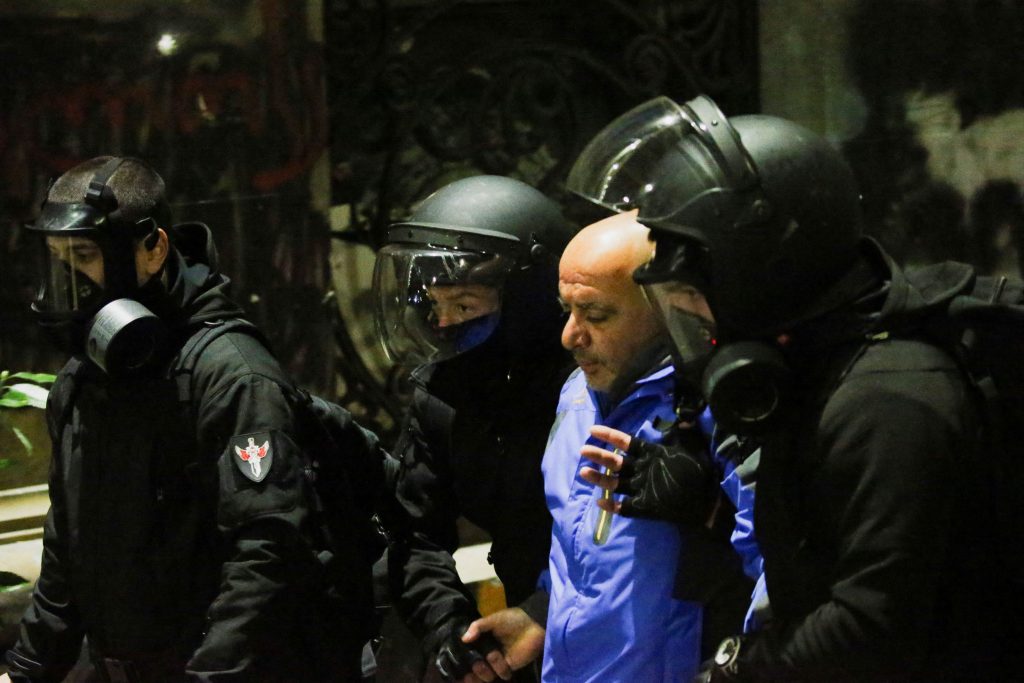
Riot police members detain a demonstrator during a protest against the new government’s decision to suspend the European Union accession talks and refuse budgetary grants until 2028, in Tbilisi, Georgia, December 1, 2024. REUTERS/Irakli Gedenidze
The government’s decision has led to widespread condemnation, with high-ranking diplomats resigning in protest. Georgia’s ambassadors in the United States, Italy, the Netherlands, and Lithuania all stepped down, joined by over 200 serving diplomats who signed an open letter denouncing the government’s stance. Additionally, hundreds of employees from Georgia’s ministries of defense, justice, education, and the central bank also issued letters opposing the freeze on EU talks.
🇳🇱 is shocked to see the violent crackdown against protestors and journalists in Georgia, where many citizens stand up and speak out for their European aspirations. The Netherlands condemns this unacceptable violence. The Georgian 🇬🇪 people deserve our full support. 👇🏼 https://t.co/cRGP0Pyxei
— Meline Arakelian (@melinearakelian) November 30, 2024
Businesses, including major players like TBC Bank and Bank of Georgia, also expressed their support for EU integration. The Georgian Orthodox Church, a powerful institution in the country, condemned the violence at the protests but also urged for calm.
President Salome Zourabichvili, who opposes the government and advocates for EU membership, stated she would not step down when her term ends next month, citing that the newly elected parliament is “illegitimate.” Zourabichvili, who holds mostly ceremonial powers, made it clear that the current political crisis will have significant repercussions for Georgia’s future.
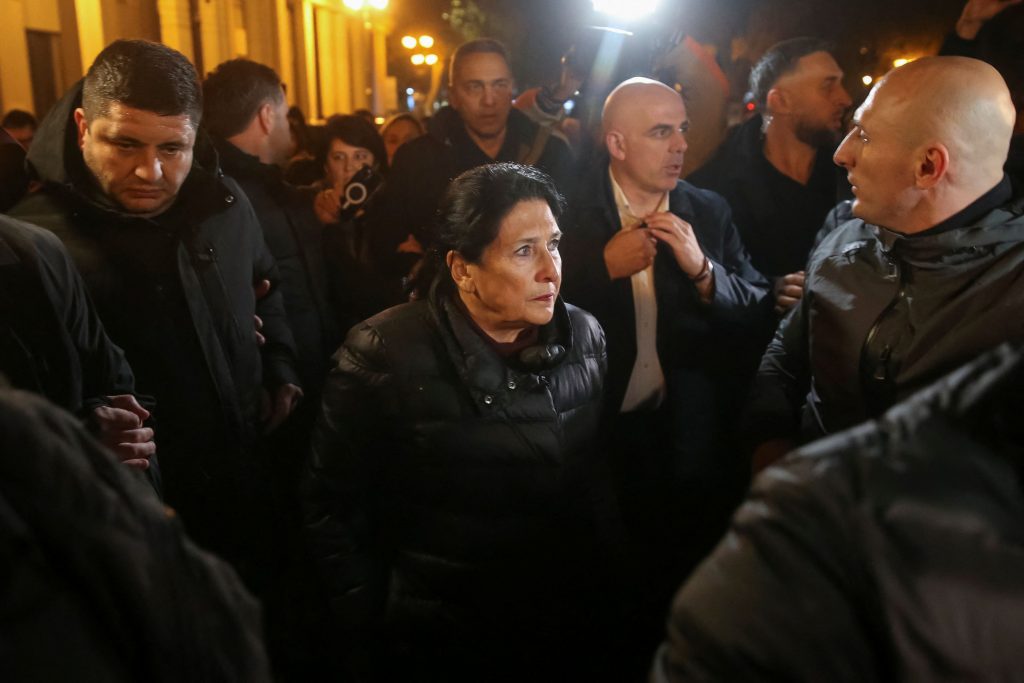
Georgian President Salome Zourabichvili attends an opposition rally to protest after the government halted the EU application until 2028, in Tbilisi, Georgia November 28, 2024. REUTERS/Irakli Gedenidze
The Georgian Dream party won almost 54% of the vote in the October 26 election, a victory the opposition claims was rigged. While the government and electoral commission insist the election was fair, Western governments have called for an investigation into the allegations of fraud.
International condemnation of the government’s decision continues to mount. The U.S. State Department announced on Saturday that it would suspend its strategic partnership with Georgia in response to the halt in EU accession talks.
“The Georgian people overwhelmingly support integration with Europe. The United States condemns the excessive use of force by police against Georgians seeking to exercise their rights to assembly and expression, including their freedom to peacefully protest. We call on all sides to ensure protests remain peaceful,” the official statement read.
Meanwhile, EU officials expressed their regret over the government’s decision, signaling that the move risks further isolating Georgia from Europe.
We stand with the Georgian people and their choice for a European future.
We condemn the violence against protesters & regret signals from ruling party not to pursue Georgia’s path to EU and democratic backsliding of the county.
This will have direct consequences from EU side.
— Kaja Kallas (@kajakallas) December 1, 2024
